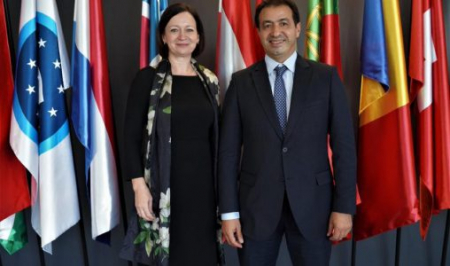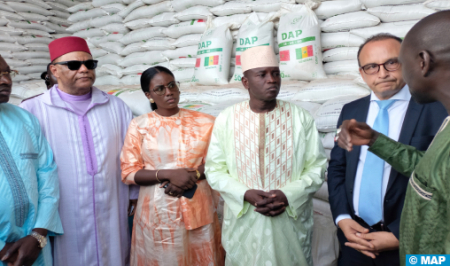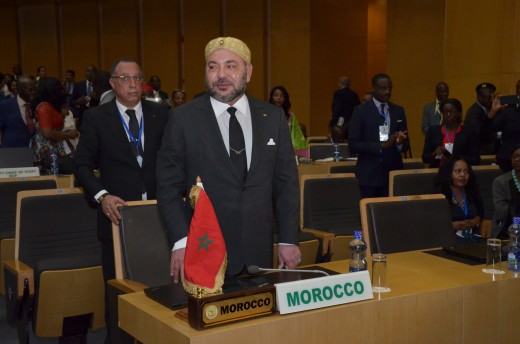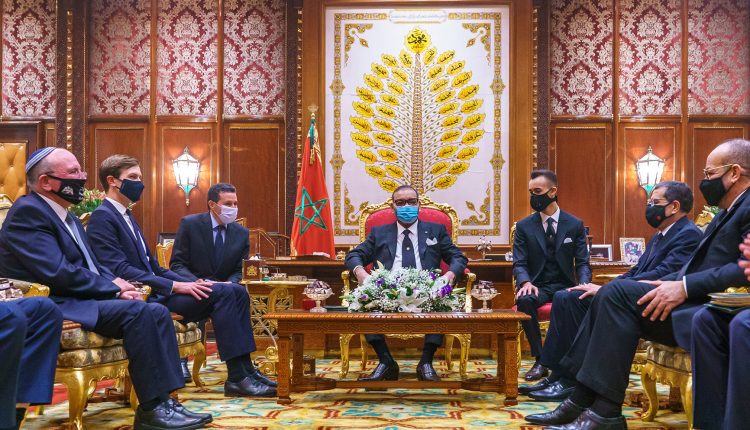Morocco’s approach to the fight against cross-border organized crime was highlighted during the 25th International Conference of Border Police, held in Warsaw October from 26 to 28 by the European Border and Coast Guard Agency (Frontex).
Director of migration and border surveillance at the Ministry of Interior, Khalid Zerouali, who took part in the conference, explained that Morocco’s approach falls in line with a global logic, that ”integrates legislative and institutional reforms in several areas related to money laundering, crypto-currency, cybercrime, smuggling, dual-use products, the fight against trafficking, anti-terrorism and arms trafficking.”
In this approach, the monitoring of borders remains a major and central axis, especially since the concept of borders has evolved and the new borders are reflected in a decompartmentalized connection between all countries even in the absence of physical borders or demarcation lines, he said, stressing the need for a stronger cooperation between partners on smart borders and control mechanisms.
Surveying the actions made by Morocco, the official noted that the Kingdom has established and maintains, despite the exorbitant cost, a large-scale control of its Mediterranean and Atlantic coasts, two maritime facades of over 3,200 km, and its border routes to prohibit illegal cross-border activities.
“The surveillance system in place is not part of a logic of mono-targeting aimed only at the trafficking of migrants, but represents a shield against all forms of organized crime,” he explained.
The resilience of the surveillance system is also highlighted by its unique operational configuration, since not only does it struggle against infiltration attempts on the national territory, but concomitantly it neutralizes, as part of its major contribution to regional security, attempts to cross-border trafficking, from the national territory.
“Through this strategy, tangible results have been achieved,” said Khalid Zerouali, referring in this connection to the abortion of more than 560,000 attempts of irregular migration over the past decade, in addition to the dismantling of more than 2,000 networks of trafficking in migrants and human beings, the seizure of large quantities of drugs and the abortion of several terrorist projects planned both on the national territory and in several friendly countries in Europe.
“Border security and the fight against cross-border trafficking networks cannot be the prerogative of a single country,” he insisted, noting that a “concrete, frank and loyal international cooperation is the keystone to hope for decisive results by giving the means to the ambitions displayed.
However, Zerouali deplored that multilateral efforts are “fragmented and do not allow an appropriate and timely response to current challenges.”
“Our meeting today is an opportunity to explore ways to make the multilateral tool more effective and more concerned with the synergy between the different areas of cooperation between the two shores of the Mediterranean,” he said, underscoring the strategic relationship and the plural partnership dimension of relations between Morocco and the EU, relations which are part of “a constant dynamic of strengthening.
Onn the sidelines of his participation in the international conference, Zerouali held talks with Frontex Executive Director ad interim Aija Kalnaja, who highlighted the role of Morocco as a “reliable and credible partner to meet common challenges.”
The talks that focused on cooperation in the field of border management were part of the Frontex-Morocco meeting, the third of a set of annual discussions held within the framework of the Frontex-Morocco joint committee.
The European official stressed the role of Morocco as a “gateway” to the African continent and the close collaboration between the Kingdom and Frontex to address common challenges.
“We are sharing lots of challenges and are working closely together to overcome these difficulties and prepare better future,” she stated.
“Frontex acknowledges the immense efforts made by the Moroccan authorities to address the challenges of migrant smuggling, trafficking in human beings and other types of cross-border crime,” Kalnaja added.
The official also expressed Frontex’s commitment to “further strengthen partnership with Morocco as a reliable and credible partner, so that we can tackle those challenges together.”
As a follow-up to the meeting, the two parties will work together in implementing a joint roadmap, including activities in the area of coast guard cooperation, risk analysis and addressing trafficking in human beings.
The 25th International Border Police Conference (IBPC) which brought together the law enforcement community discussed contingency planning for emergencies at the borders.
Efficient responses to crises, cross-border health threats and protection of migrants and refugees were among the key items on the agenda of the international event.



